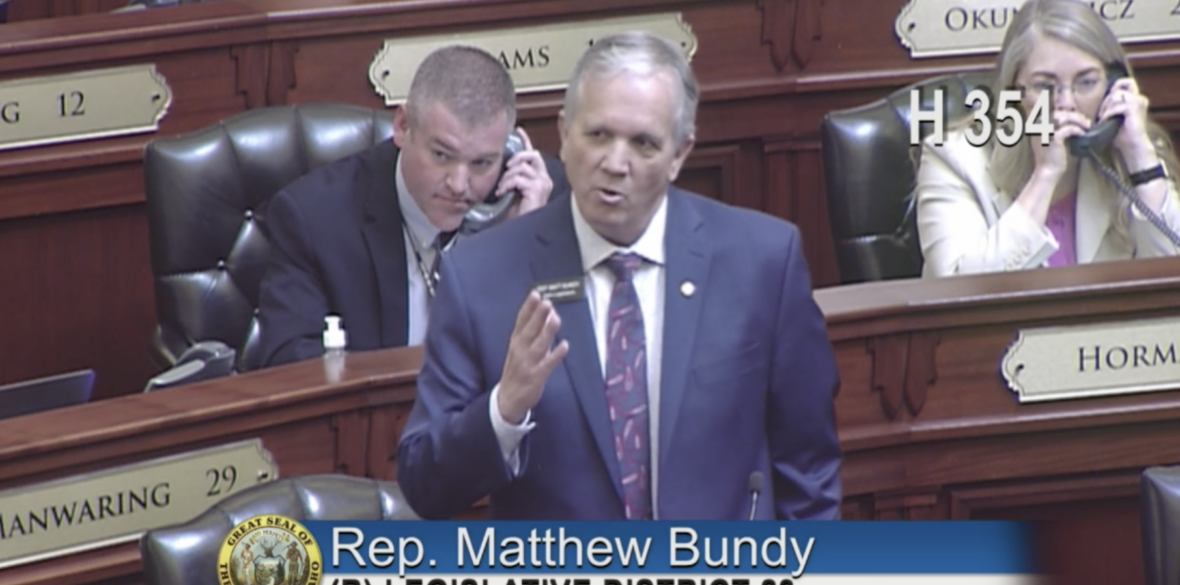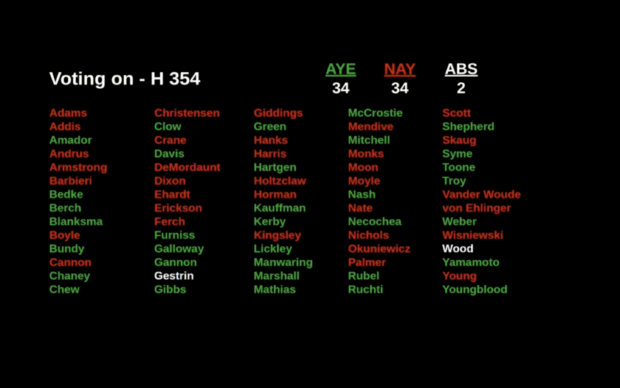
For the third time this legislative session, the House has rejected an education budget over fears of a social justice agenda in the classroom.
The state’s K-12 teacher salaries budget fell Tuesday on a 34-34 tie vote after more than an hour of volatile debate — ranging from anecdotes about good teachers and “bad actors” to accusations that educators are being forced to include critical race theory in their coursework. Stories from teacher-lawmakers on both sides of the issue focused on the content’s presence — or lack thereof — in elementary, middle and high schools.
“Our teachers are great, and we need to fund our teachers, but we need to protect our teachers from being forced to teach this garbage of social justice, including critical race theory,” said Rep. Heather Scott, R-Blanchard.
Idaho’s seven K-12 budgets have generally sailed through the House the past few years, and the House passed two K-12 budgets unanimously Wednesday. But the teacher salaries budget, the largest public schools funding bill, fell just as a bloc of Republican state officials are widening the scope of a divisive Statehouse debate over social justice and education to include K-12.

Last week, Lt. Gov. Janice McGeachin announced she’d create an indoctrination task force geared at finding where critical race theory, social justice, Marxism and communism “are lurking and excise them from our education system.” McGeachin’s announcement came just a day after two GOP House members attempted to insert $4,000 into her office’s budget to fund such a task force focused on K-12 schools.
Tuesday’s vote followed an overwhelming April 7 House vote to kill the state’s higher education budget over social justice issues, and a narrow March 2 vote to block the state from spending a $6 million federal early education grant.
Tuesday’s debate was punctuated by testy exchanges.
Some legislators, such as Rep. John McCrostie, D-Garden City, said colleagues’ concerns were baseless.
McCrostie said his head was “just absolutely spinning right now listening to this debate.” A teacher, he recounted beginning the year virtually.
“Ladies and gentlemen, as someone who has taught school for 18 years in the state of Idaho, the two hardest years for me were the very first year when I did not know what I was doing, and this year, when I know absolutely what I’m doing and I have to transform it all, and I need to put it into this little box,” McCrostie said, gesturing to his laptop. “I don’t have time to teach critical race theory. Are you kidding me? … This whole discussion on critical race theory coming into classrooms this year: It’s nuts.”
Critics said they would vote in favor of another version of the budget, still granting teachers the same experience-based pay raises the original includes. But they conditioned their approval on the Joint-Finance Appropriations Committee adding language that prohibits schools from encouraging social justice activism in their curriculum.
Said Rep. Wendy Horman, R-Idaho Falls, “We’ve heard several curricula mentioned on the floor here today. They are deeply troubling curricula, and it is entirely appropriate for us to tie strings — the same way the federal government ties strings to our funding — to the use of the professional development dollars that they not be used in a discriminatory way.”
Though some argued added language restricting social justice discussions in public schools should come in separate legislation, Horman protested that a House Education proposal to ban “racist and sexist concepts” from schools, including that the U.S. or Idaho is inherently racist, has not moved forward after it was introduced with the committee’s chairman absent.
In Idaho all curriculum decisions are made at the local level.
Rep. Rick Youngblood, R-Nampa, JFAC’s co-chair, warned bouncing the budget back to the appropriations committee could take three or four days, and that if any of the remaining K-12 budgets are rejected, reworking them could take longer.
The teacher salaries budget accounts for around $1.1 billion of the total $2 billion K-12 budget. If all those proposals pass, without reductions, K-12 schools would receive the most general fund money they have in Idaho history.
And while the House was at loggerheads over the teacher salaries budget, it took the Senate all of two minutes to pass a smaller component of the K-12 budget — a $61.3 million facilities budget that includes state tax dollars and Idaho Lottery proceeds.
The Senate passed that bill unanimously, as the House did last week.
The facilities budget now heads to Gov. Brad Little’s desk — along with a K-12 budget for the Idaho School for the Deaf and the Blind, also passed unanimously in both houses.
The remaining five K-12 budget bills, including the teacher salary bill, remain in legislative limbo.
Senate passes vaccination exemption bill
After quickly polishing off its K-12 budget work for the day, the Senate spent more than 30 minutes debating a vaccination exemption bill.
But after this lengthy discussion, House Bill 298 passed easily, on a bipartisan 30-5 vote.
HB 298 would require schools to explain vaccination exemption laws “in any communication to parents and guardians regarding immunization.”
State law allows parents to opt their children out of recommended vaccinations for any reason, and simply by turning in a form to their local school. Consequently, Idaho has one of the highest vaccine exemption rates in the nation.
Supporters of HB 298 said school districts have not consistently explained the opt-out policy, and said parents need to be able to make an informed choice.
“I don’t think this relaxes our standards in any way,” said Sen. Lori Den Hartog, R-Meridian, the bill’s co-sponsor.
Said Sen. Jim Rice, R-Caldwell: “It is important that we remember that our citizens don’t recreationally read the Idaho code.”
Senate Health and Welfare Committee Chairman Fred Martin led the opposition. While saying Idahoans should have the right to choose about vaccinations, he also said the state needs to send a clear message about the “critical” importance of vaccinations.
HB 298 has already passed the House, so it now heads to Gov. Brad Little’s desk.
Idaho Education News reporter Kevin Richert contributed to this report. Idaho Education News covered Tuesday’s sessions remotely.
